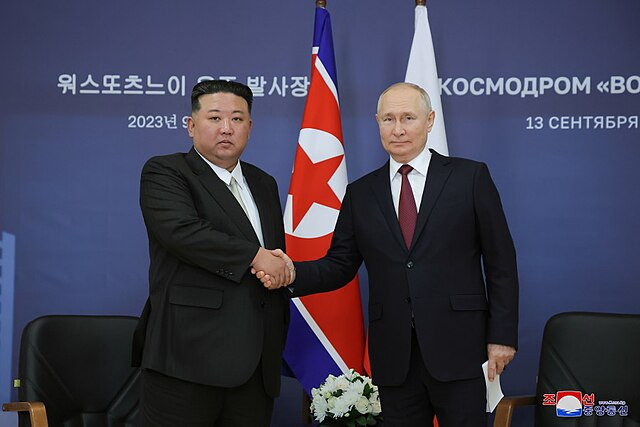Russian President Vladimir Putin suggested that Russia might supply weapons to North Korea, following a defense pact signed between Moscow and Pyongyang. This development comes amid escalating tensions over the Korean peninsula and ongoing conflicts involving Ukraine.
The defense pact, signed during Putin's recent visit to North Korea, commits both nations to provide immediate military assistance to each other in the event of an armed attack. The agreement marks the highest level of military cooperation between Russia and North Korea since the Cold War, raising concerns among U.S. officials and international observers.
Matthew Miller, a spokesperson for the U.S. State Department, described the potential provision of Russian weapons to North Korea as "incredibly concerning." He noted that such actions could destabilize the Korean peninsula and potentially violate United Nations Security Council resolutions that Russia itself has supported. "It would destabilize the Korean Peninsula, of course, and potentially ... depending on the type of weapons they provide, might violate U.N. Security Council resolutions that Russia itself has supported," Miller said during a press briefing.
The U.S. Secretary of State, Antony Blinken, along with South Korea's foreign ministry, issued statements underscoring the serious threat posed by the new pact to peace and stability in the region. Blinken indicated that the U.S. would consider "various measures" in response to the agreement.
In Seoul, the South Korean government summoned the Russian ambassador to protest the agreement with North Korea. South Korea's Vice-Foreign Minister Kim Hong-kyun condemned the treaty and called on Russia to immediately halt its military cooperation with Pyongyang. This diplomatic move underscores the heightened state of alert and concern in South Korea regarding the implications of the Russo-North Korean pact.
Speculation has been rife that Putin and North Korean leader Kim Jong-un discussed additional supplies of missiles and ammunition during their meeting in Pyongyang. Such supplies could be intended for Russian forces engaged in Ukraine, further complicating the geopolitical landscape. Putin hinted at this during a state visit to Vietnam, stating that reciprocal supplies of Russian weapons to North Korea would be an appropriate response to Western military support for Ukraine.
"Those who send these [missiles to Ukraine] think that they are not fighting us, but I said, including in Pyongyang, that we then reserve the right to supply weapons to other regions of the world, with regard to our agreements with North Korea," Putin said. "I do not rule this out."
Jens Stoltenberg, the head of NATO, voiced concerns that Russia's support could further North Korea's ballistic and nuclear missile programs. The Kremlin's spokesperson, Dmitry Peskov, indicated that Putin is ready for direct dialogue with the U.S. on security issues but linked such discussions to the broader context of the war in Ukraine.
The U.S. has sought direct talks with Russia to reduce the risk of nuclear conflict, but U.S. officials doubt Putin's sincerity in negotiating an end to the invasion of Ukraine. They emphasize that it is up to Ukraine to decide when and how peace talks should proceed.
U.S. officials believe North Korea is eager to acquire advanced military technology from Russia, including fighter aircraft, surface-to-air missiles, and materials for ballistic missile production. There is also evidence suggesting that Pyongyang has already supplied significant quantities of ballistic missiles and artillery shells to Russia, though North Korea has dismissed these claims as "absurd."
Analysts warn that Russian arms supplies to North Korea could escalate tensions on the Korean peninsula and potentially spark a regional arms race involving South Korea and Japan. The already strained relations between North and South Korea have worsened recently, with incidents of psychological warfare and border provocations.




